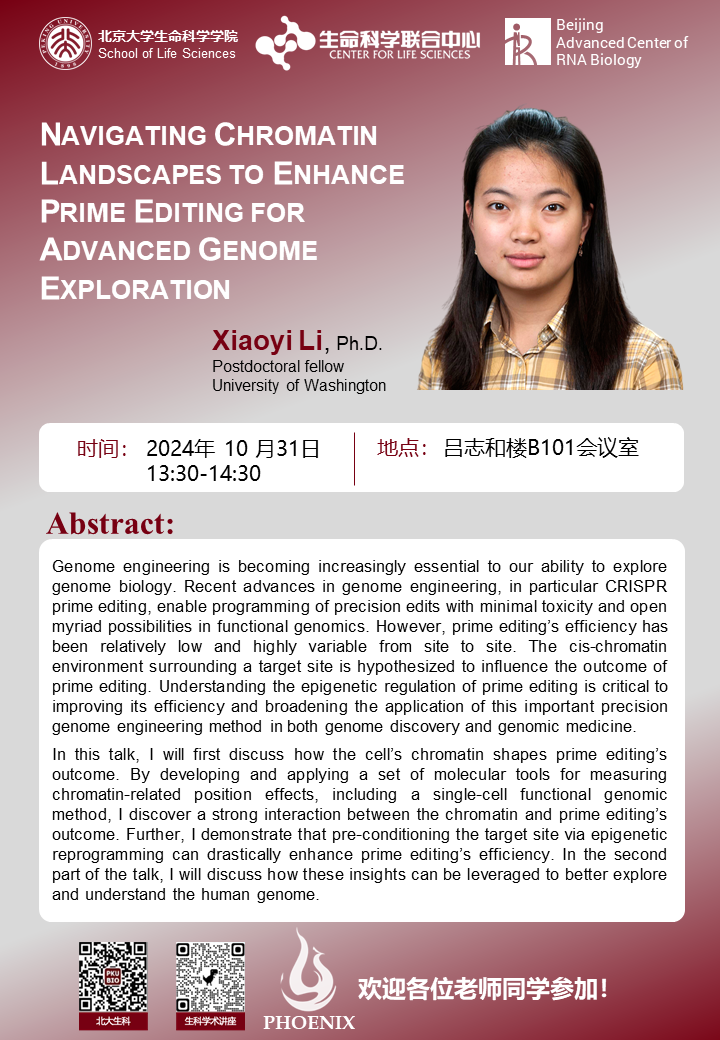Speaker: Xiaoyi Li, Ph.D., Postdoctoral fellow, University of Washington
Time: 13:30-14:30 p.m., Oct 31, 2024, GMT+8
Venue: B101, Lui Che-woo Building, PKU
Abstract:
Genome engineering is becoming increasingly essential to our ability to explore genome biology. Recent advances in genome engineering, in particular CRISPR prime editing, enable programming of precision edits with minimal toxicity and open myriad possibilities in functional genomics. However, prime editing's efficiency has been relatively low and highly variable from site to site. The cis-chromatin environment surrounding a target site is hypothesized to influence the outcome of prime editing. Understanding the epigenetic regulation of prime editing is critical to improving its efficiency and broadening the application of this important precision genome engineering method in both genome discovery and genomic medicine.
In this talk, I will first discuss how the cell's chromatin shapes prime editing's outcome. By developing and applying a set of molecular tools for measuring chromatin-related position effects, including a single-cell functional genomic method, I discover a strong interaction between the chromatin and prime editing's outcome. Further, I demonstrate that pre-conditioning the target site via epigenetic reprogramming can drastically enhance prime editing's efficiency. In the second part of the talk. I will discuss how these insights can be leveraged to better explore and understand the human genome.
Source: School of Life Sciences
